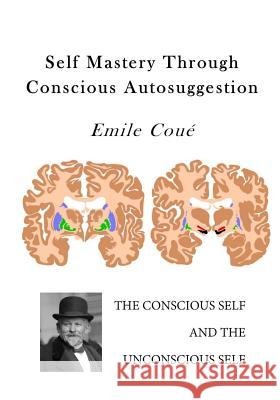Self Mastery Through Conscious Autosuggestion: Autosuggestion » książka
Self Mastery Through Conscious Autosuggestion: Autosuggestion
ISBN-13: 9781523322695 / Angielski / Miękka / 2016 / 86 str.
Self Mastery Through Conscious Autosuggestion
Autosuggestion
By Emile CouE
Autosuggestion is a psychological technique that was developed by apothecary Emile CouE at the beginning of the 20th century.
The CouE method centers on a routine repetition of this particular expression according to a specified ritual, in a given physical state, and in the absence of any sort of allied mental imagery, at the beginning and at the end of each day. CouE maintained that curing some of our troubles requires a change in our subconscious/unconscious thought, which can only be achieved by using our imagination. Although stressing that he was not primarily a healer but one who taught others to heal themselves, CouE claimed to have affected organic changes through autosuggestion.
SELF MASTERY THROUGH CONSCIOUS AUTOSUGGESTION
Suggestion, or rather Autosuggestion, is quite a new subject, and yet at the same time it is as old as the world.
It is new in the sense that until now it has been wrongly studied and in consequence wrongly understood; it is old because it dates from the appearance of man on the earth. In fact autosuggestion is an instrument that we possess at birth, and in this instrument, or rather in this force, resides a marvelous and incalculable power, which according to circumstances produces the best or the worst results. Knowledge of this force is useful to each one of us, but it is peculiarly indispensable to doctors, magistrates, lawyers, and to those engaged in the work of education.
By knowing how to practise it consciously it is possible in the first place to avoid provoking in others bad autosuggestions which may have disastrous consequences, and secondly, consciously to provoke good ones instead, thus bringing physical health to the sick, and moral health to the neurotic and the erring, the unconscious victims of anterior autosuggestions, and to guide into the right path those who had a tendency to take the wrong one.
Zawartość książki może nie spełniać oczekiwań – reklamacje nie obejmują treści, która mogła nie być redakcyjnie ani merytorycznie opracowana.











